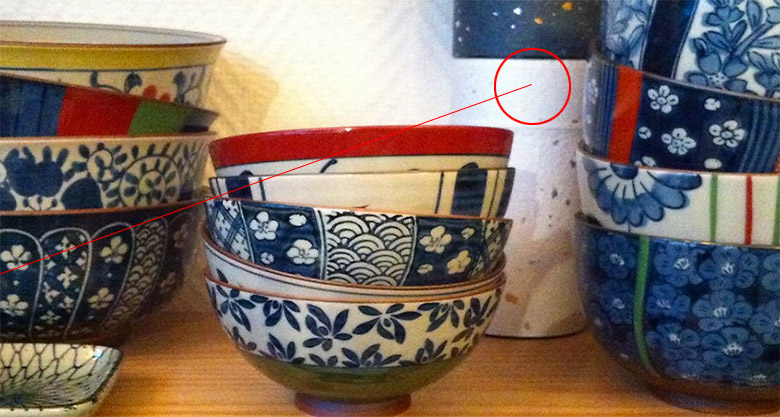Family constellations - The basics
As already expressed, in Family Constellations there are some principles which allow us to understand the functioning of a system. :
Also when people are excluded or forgotten by the family after social rejection, physical or mental disability, imprisonment, homosexuality, emigration or religious choices must be reintegrated into family, otherwise descendants will have to pay the consequences of exclusion, often repeating the same destiny of the excluded ancestors.
This love is not only unconditional but also "blind" because it leads children to unconsciously take on themselves the pain and destiny of their parents.
Some children are ready to sacrifice their own lives for their parents, in the hope of "saving them" sometimes condemning themselves to live lives of loneliness, failure, illness if not early death.
The causes of interrupted movements can be many: a pregnancy experienced with anxiety or danger maybe in wartime, a bereavement, a famine, or childbirth in severe conditions either for the mother or the child. Obviously the death of a mother during childbirth or shortly thereafter is considered extremely painful in the structuring of a child and could have an interrupted movement as a consequence.
In all these cases it will be necessary to reestablish with the proper procedures, the original connection between mother and child.
These laws describe how a system can be in harmony and equilibrium or have lost this.
he law of the sacred order:
Within a family, each member has in relation to other family members a unique place, irreplaceable and particular, which is determined at birth, and must be recognised and respected to keep the system in harmony. Parents come before their children, older children before the younger ones, because life follows an order dictated by time and goes in one direction, from the past towards the future. Those who has arrive first have precedence over those who come later. If this order is not respected the vital energy stops flowing.The law of belonging:
Each member of a family has the right to belong to the family system and therefore no one has the right to exclude another under any pretext. This is especially true for aborted children or those who died very young, who often end up being forgotten or even not considered part of the family.Also when people are excluded or forgotten by the family after social rejection, physical or mental disability, imprisonment, homosexuality, emigration or religious choices must be reintegrated into family, otherwise descendants will have to pay the consequences of exclusion, often repeating the same destiny of the excluded ancestors.
The law of balance:
In the family system there is not only a sense of belonging, but also a sense of balance. Parents are "the grownups” who "give", while the children are "the little ones” who ”receive". The “little ones” in their turn will one day become “grownups” and will give to their “little ones” In order that there is balance within a system this rule should always be respected: parents should "give with love," without expecting anything in exchange, and children should "receive with gratitude " not complaining or judging what they have received. Within a relationship parents are equal because they are adults; in this case the exchange is done on an equal basis, so that each receives and gives to the same extent.Family consciousness :
Everyone is fully responsible for what they do: the consequences of actions taken by a member of the family have an effect on the whole system, if the person involved is not aware of their responsibility. Every injury inflicted or received needs to be repaired, and often many people, +despite themselves, find they are involved in this task of reparation instead of living their own lives.Blind Love:
Bert Hellinger observed that the tie that unites children and their parents is a deep unconscious feeling of primary and biological origin. This bonding persists even if the child has not had any contact with his biological parents, he does not know them or if he was subjected to violence, abuse or conflict. (As in the case of an abandoned child who was brought up by others).This love is not only unconditional but also "blind" because it leads children to unconsciously take on themselves the pain and destiny of their parents.
Some children are ready to sacrifice their own lives for their parents, in the hope of "saving them" sometimes condemning themselves to live lives of loneliness, failure, illness if not early death.
The Interrupted Movement:
Parents and especially mothers play a crucial role offering love, protection, security and trust to their children. A child is totally dependent on his parents and especially his mother, with whom there is a symbiotic relationship from the start. For a serene and balanced growth it is essential that this love and vital energetic link between parents and children is continuous and constant. But if a painful event should affect the life of the mother, the relationship between the mother and child might prematurely break causing in the child an irritation, and withdrawal which would manifest in his not being able to "receive". This interruption of the energy flow between mother and child is called an "interrupted movement."The causes of interrupted movements can be many: a pregnancy experienced with anxiety or danger maybe in wartime, a bereavement, a famine, or childbirth in severe conditions either for the mother or the child. Obviously the death of a mother during childbirth or shortly thereafter is considered extremely painful in the structuring of a child and could have an interrupted movement as a consequence.
In all these cases it will be necessary to reestablish with the proper procedures, the original connection between mother and child.
These laws describe how a system can be in harmony and equilibrium or have lost this.
